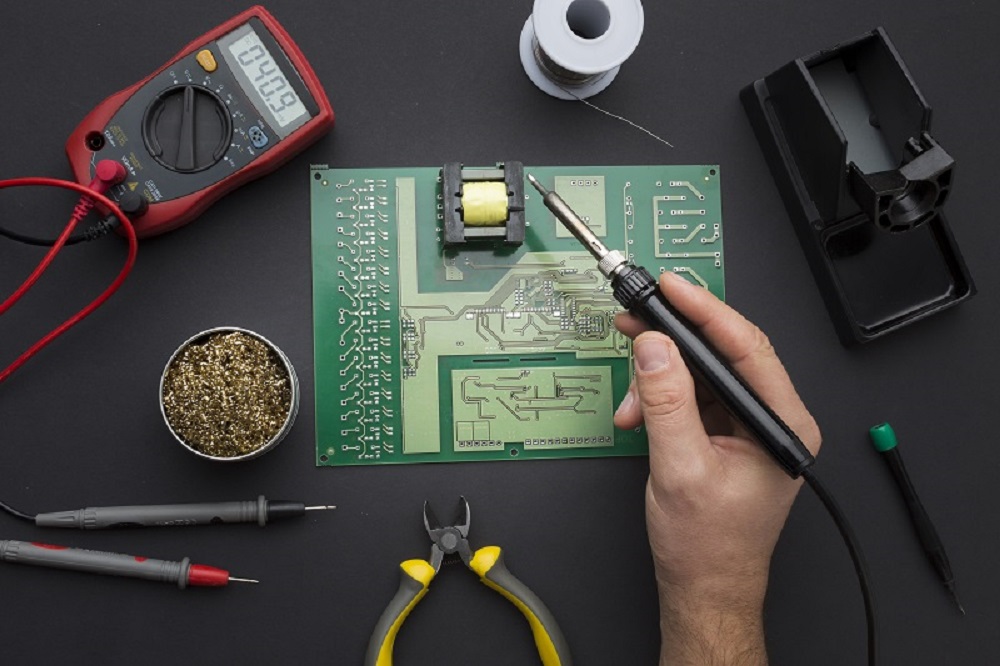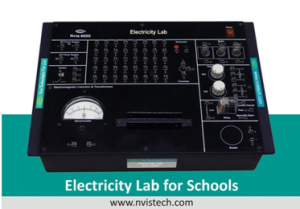Introducing skill-based learning has been a top priority for schools in the backdrop of NEP 2020. Today, there is a dire need to integrate vocational subjects that expose students to skills needed in the world of work.
Recently, CBSE has made Composite Skill Labs mandatory for schools to boost skill education, in line with the National Curriculum Framework for School Education (NCF-SE). Even under the Samagra Shiksha, it’s been proposed to offer practical training in the hub-and-spoke model. These labs are expected to serve as comprehensive learning spaces equipped with modern tools and equipment, paving the way for:
- Aligning education with industry needs right from the school level through appreciation for skills.
- Creating awareness about hands-on learning and igniting curiosity about how things work.
- Developing scientific temper through skills like observation, inquiry, design thinking, and problem-solving.
- Improving students’ employment prospects in various trades to help them transition to the world of work.
- Showing avenues for diverse career pathways, including entrepreneurship through innovative and independent thinking.

3 Reasons why practical learning matters in schools
In today’s rapidly evolving educational landscape, practical learning stands as a critical bridge between theoretical knowledge and real-world applications. Take, for instance, the subject of basic electricity—one of the most fundamental yet impactful areas of study. When students not only learn the laws of electricity, such as Ohm’s Law and Kirchhoff’s Laws, but also apply these concepts hands-on in a lab setting, they gain insights far beyond what textbooks alone can provide. Practical training enables students to see these principles in action, making the learning process both tangible and engaging. Here’s why practical training is essential in schools:
- Enhances conceptual understanding: Practical learning brings textbook theories to life. For instance, by using actual equipment to create series and parallel circuits, students can better understand the principles of current, voltage, and resistance, forming a lasting connection with these foundational ideas. This experience deepens their retention and comprehension of core concepts in basic electricity.
- Boosts problem-solving skills: Experimenting in a lab environment encourages students to troubleshoot and analyze. When faced with real-time challenges, such as identifying errors in a circuit setup, they develop critical problem-solving skills that are invaluable both academically and personally.
- Fosters a growth mindset: By engaging directly with electrical components and understanding their functionality, students build confidence in their ability to work through challenges. This practical exposure fosters curiosity, resilience, and a mindset that values exploration and innovation—key qualities for success beyond traditional classroom boundaries.
Given the growing emphasis on vocational skills, it’s essential for schools to integrate subjects like basic electricity as part of their skill development programs. Establishing a Composite Skill Lab with relevant training equipment, provides students with an interactive, hands-on experience that aligns with CBSE’s skill lab requirements and helps them explore diverse career pathways.
Exploring the Nvis 6000 Electricity Lab Trainer: What sets it apart?
The Nvis 6000 Electricity Lab Trainer offers an exciting solution to meet the demand for practical, hands-on learning. As a versatile training system, it brings electrical concepts to life through interactive experiments and an intuitive design that is accessible to students and educators alike. Here’s why the Nvis 6000 stands out:
- User-friendly, stand-alone design: Built for ease of use, the Nvis 6000 requires no additional equipment, making it suitable for both new and established labs.
- Durable and comprehensive: Constructed for long-term use, this kit covers a wide range of fundamental electrical concepts, including series and parallel circuits, Ohm’s Law, R-C and L-C circuits, and semiconductor behavior.
- Complete learning package: With solderless connections, a variety of coils and cores, a component box, and online tutorials, the Nvis 6000 provides a full lab experience that’s ready to go from day one.
This product includes high-quality software that mirrors the hardware components and allows students to conduct virtually identical experiments as they would with the physical equipment. It simplifies learning, making it accessible even for students who may need additional support.
How schools benefit from investing in the Nvis 6000
For schools working to create a robust practical learning environment, the Nvis 6000 is a strategic investment that supports educational goals aligned with CBSE’s mandate for skill-based training. Here’s how schools benefit:
- Meeting skill lab requirements: As CBSE emphasizes the creation of skill labs, the Nvis 6000 provides an ideal platform that integrates seamlessly into school curricula, fulfilling the directive for hands-on skill development.
- Promoting industry-ready skills: Through guided experiments, students gain exposure to concepts that align with real-world electrical engineering and electronics, bridging the gap between school education and industry expectations.
- Supporting diverse learning paths: With its array of experiments, the Nvis 6000 gives students an opportunity to explore multiple aspects of electronics and electrical science, paving the way for diverse career pathways in STEM fields, trades, or even entrepreneurship.
Incorporating practical lab tools is more than just adding equipment; it’s about empowering students to think critically, solve problems, and explore new ideas. By investing in tools that align with CBSE’s vision for skill education, schools can create a future-ready environment where every student has the chance to thrive.
Ready to learn more about bringing the Nvis 6000 to your school? Connect with us to explore how this equipment can enhance your science curriculum and inspire the next generation of innovators.
Tags: CBSE Composite Skill Labs, National Curriculum Framework for School Education (NCF-SE), NEP 2020, Nvis 6000 Electricity Lab Trainer, Practical training in basic electricity, Skill-based learning, STEM education









